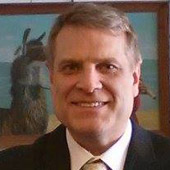A Conversation:
The Problem
With Sunshine
How transparency and accountability overwhelming favor special interests
By King, D’Angelo, Ranalli – Talk given at the Carr Center for Human Rights Policy at the Harvard Kennedy School, November 21, 2016
The Video
On Nov 21st, 2016 at the Carr Center for Human Rights Policy at the Harvard Kennedy School we presented our research on the overwhelmingly negative aspects of transparency and accountability in all legislatures. We focused on the dynamics of representation that emerged out of the 1970 Legislative Reorganization Act, notably the way that legislation tilted starkly in favor of powerful interest groups. Because of this, transparency has likely been a driver of a number of societal ills, including (but not limited to) increased incarceration rates, debt, climate change, bank failures, income inequality, and partisanship. Further, the internal gamesmanship wrought by transparency has also crucially degraded the legislative process and turned all negotiations into arms races.
Speakers
Summary
Several important steps toward legislative transparency in the 1970s have fundamentally altered how the U.S. Congress and state legislatures operate. Some of these reforms, like mandating recorded votes in the Committee of the Whole and opening up Conference Committees to public view, were widely supported in the wake of the escalation of the Vietnam war. Congressional reforms were quickly mirrored in other legislatures.
We explore the origins of these reforms, highlighting the 1970 Legislative Reorganization Act. Key reforms were inserted by lobbyists seeking to more efficiently monitor the behavior of legislators. Representatives adjusted by changing their behavior on votes in the Committee of the Whole, which soon became a contentious proving ground for ideological purity and fidelity to special interests and party leadership. We elaborate on theories of representation to understand how behaviors change when different types of monitoring are in place.
Consistent with the theory, increases in transparency were followed by increased narrow-interest lobbying, wasteful and pernicious legislative gamesmanship, increased partisanship, and more. And we investigate these changes as likely drivers for income inequality, climate change, gridlock and demosclerosis. Finally, we call attention to specific new reforms that could reestablish deliberative spaces for legislators.
The discussion took place from 4-5pm on November 21st at the Carr Center for Human Rights Policy at the Harvard Kennedy School. It was followed by an untaped question and answer session from 5pm-5:30.






